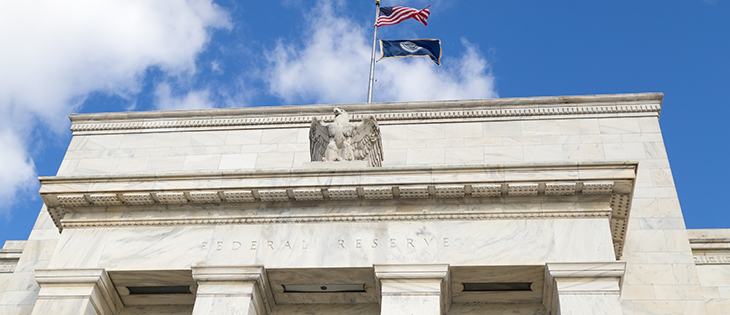Middle-Market Public Policy Roundup
The border adjustment tax is dead, the new Fed vice chair wants transparency, and P3s were touted as a panacea to U.S. infrastructure woes in this week’s top stories.

Public-Private Partnerships Key to Infrastructure Reform
Public-private partnerships, also known as P3s, are an efficient way to tackle public infrastructure projects, especially with the estimated $300 billion-plus in private capital waiting to be deployed, writes John Parkinson, executive director of the Association for the Improvement of American Infrastructure, in a recent editorial for The Hill. With American infrastructure currently sitting at a D-plus grade from the Society of American Engineers, these partnerships could enable economic and technological innovation to be deployed toward improvements.
Bye Bye BAT
The proposed border adjustment tax is dead, Axios reports. The so-called “Big Six” group of government leaders say the consumption-based tax will be left out of any reform talks in the heavily-anticipated framework for tax reform they released on Thursday. The group’s members include House Speaker Paul Ryan, Treasury Secretary Steven Mnuchin, Senate Majority Leader Mitch McConnell, Senate Finance Chairman Orrin Hatch, House Ways and Means Chairman Kevin Brady and National Economic Council Director Gary Cohn.
The document was light on specifics and consisted of a promise to reduce rates and allow “unprecedented capital expensing.” It indicated that there will be an emphasis on the long-term, though that could prove difficult without the BAT because any permanent reform must be paid for.
BUILD Responds to ‘Big Six’ Framework
The Businesses United for Interest and Loan Deductibility Coalition, ACG’s partner in maintaining the deduction of interest paid on corporate debt, released a statement on Thursday in response to the Big Six framework.
“As policymakers turn to the details, the BUILD Coalition encourages them to remain focused on achieving their goal of pro-growth tax reform. Essential to this effort is maintaining the full deductibility of interest expense for all businesses, regardless of size or sector, so they can continue to make the long-term investments that create U.S. jobs and help drive growth,” the group wrote.
Nominee for Fed Bank Supervision Wants Transparency
Per Morning Consult, President Trump’s choice for vice chairman for bank supervision at the Federal Reserve, Randal Quarles, said he wants the agency’s regulatory agenda to have a “theme” of transparency for tasks like the Fed’s Comprehensive Capital Analysis and Review, also known as the bank “stress test.”
Quarles also supports many of the changes proposed by Daniel Tarullo, the former Fed governor. Tarullo advocated for changes surrounding issues such as Volcker Rule limits on bank trading using proprietary assets.
Check back each Friday for the weekly Public Policy Roundup, or check out past stories in our archive.

Ben Marsico works on public policy issues for ACG.


